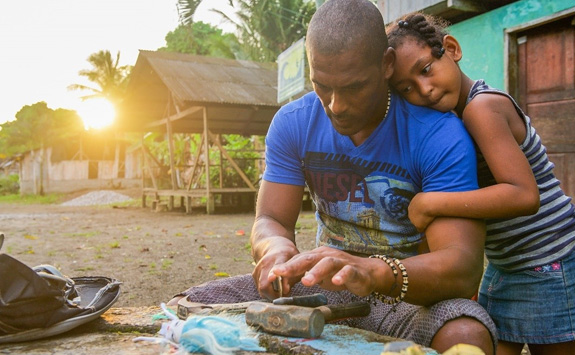Sustainable Communities
Policy making for sustainable community development in Colombia.
Events and progress reports
Newcastle University, Northumbria University, the Colombian Institute for Environmental Research of the Pacific (IIAP) and the University of Los Andes, Bogotá ran an event in March 2022. The aim was to explore the potential business models that might be suitable for community initiatives along the Pacific Coast. It was also an opportunity to identify funding avenues that could support such initiatives. This was in line with the overall aim of the project to develop a social incubator and accelerator in the region.
It is vital that any project is designed and delivered in direct partnership with local communities. Attendees at the event included local entrepreneurs and community leaders from the region. Also representatives attended from the Sistema General de Regalías and the OECD. Newcastle University's Research Funding Development Manager provided an institutional perspective on funding initiatives.
One of the outcomes from the discussions was the need for long-lasting partnerships. This also included funding streams that help initiatives to sustain themselves beyond the duration of special projects and to scale-up their activities. Finding and applying for funding opportunities can be complicated and time consuming. Academic partners can provide support with this. Participants at the event included professors, lecturers and postdoctoral fellows from many international universities.
Most importantly, the discussions highlighted the clear need for projects that were socially, environmentally and economically sustainable. A clear set of criteria emerged during discussions, including the following principles for any community initiative.
- it must be grounded within the community that it serves and it must benefit them directly.
To do so, the agenda must be agreed upon by all involved and the initiative should be planned, managed and maintained by the community. Training or support should be provided from the start by their institutional and academic partners.
- the initiative must respect the territory
This means the social and environmental characteristics of the particular places involved in the project and ensuring that they are protected through the initiative.
- good communication must be maintained.
This applies to communications between community initiatives and institutional partners. This also includes communications between different community initiatives working towards a similar goal. Which means sharing experiences, best practices, recurring obstacles and resources would be beneficial to all involved.
The next steps for the project include establishing a Delphi panel and selecting a small number of key projects to pilot.
Videos
Please find videos relating to the project on our YouTube playlist.
Partners
Our academic partners include:
- Northumbria University
- Interdisciplinary Centre for Development Studies, Universidad de los Andes (Colombia)
Our partners in policy making and influencing include:
- Institute for Environmental Research on the Pacific (Colombia)
- Ministry of the Environment (Colombia)
- Ministry of the Interior (Colombia)
- Department for Social Prosperity (Colombia)
- Municipal government, Tadó (Colombia)
- Municipal government, Carmen del Darién (Colombia)
- Municipal government, Cértegui (Colombia)
- Consejo Comunitario (Afro-Colombian Community Council) los Arapios (Colombia)
- Consejo Comunitario, Unión Río Caunapi (Colombia)
- Fundación Fragotes (Fragotes Foundation- a community based non-profit), San Antonio vía Andagoya, (Colombia)
- Peñas del Olvido, Indigenous Authority, Tadó (Colombia)
